Our Mission. The Love Lab at MIT aims to advance science and technologies that can reach patients on a global scale. We think beyond ourselves as we seek to create innovations with potential for broadening access to medicines and for transforming perspectives on how biotechnologies are used in drug discovery, development and manufacturing. In realizing this goal, we seek to train and mentor new leaders and professionals through holistic career development.
Our Values. We are devoted to working with excellence and integrity for the benefit of others. We strive to use the resources we have available wisely to realize advancements and innovations that can impact our world. We emphasize transparent and open engagement to build relationships amongst ourselves, with our collaborators, and our community.

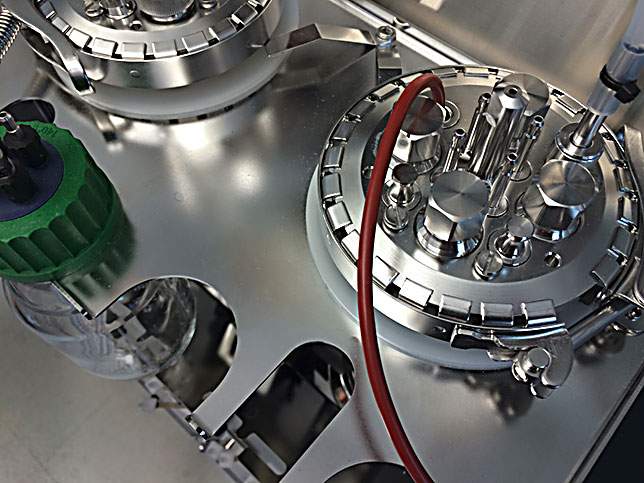
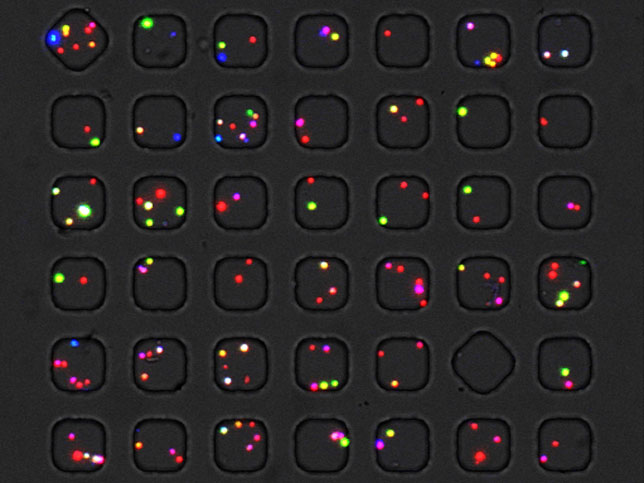
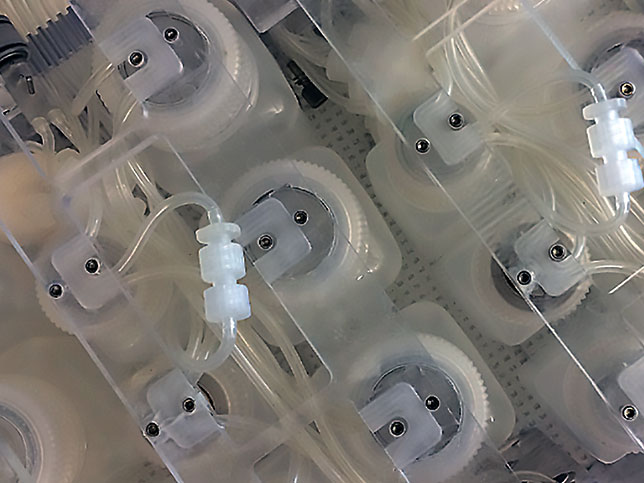
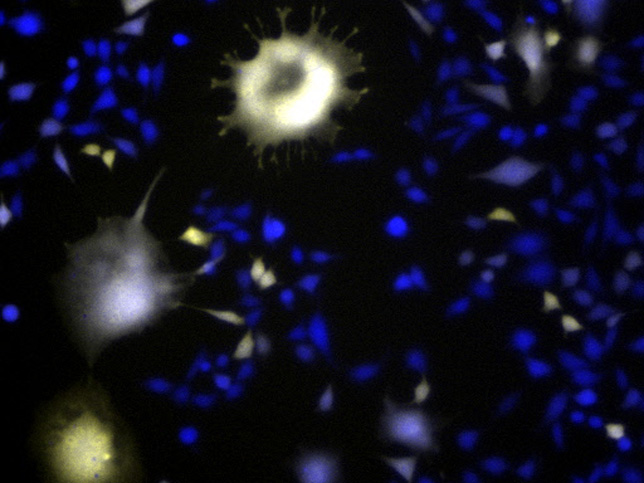
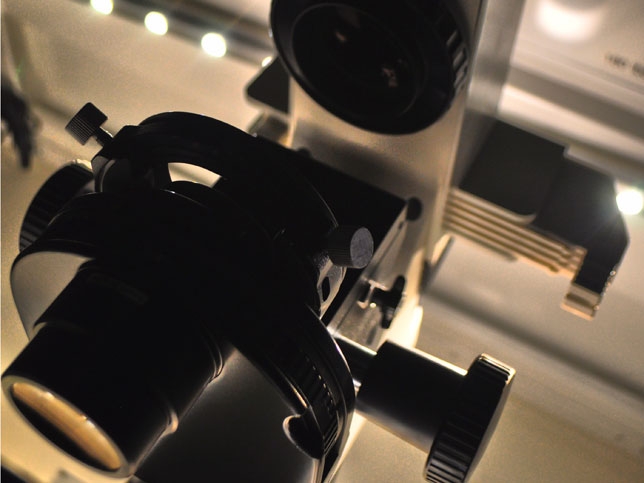
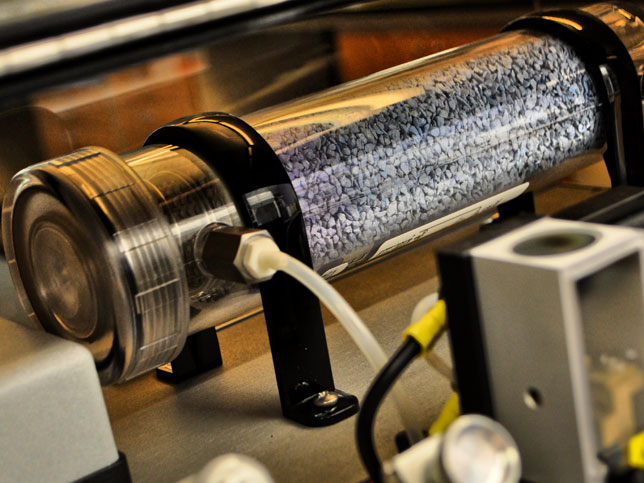
Our Successes. Since our laboratory began at MIT in 2007, we have made contributions as a team to the science and biotechnology for medicines. We highlight here three examples of these successes together.
Single-Cell Analysis. Today, the characterization of single cells has become widely useful for discovering factors in human disease and interventions and for developing new medicines. We and other groups have helped create new technologies and approaches for single-cell analysis. Since the inception of the lab, multiple students and post-doctoral associates have explored new assays and methods using a simple array of subnanoliter wells. We have used these methods to characterize cells isolated from clinical samples from patients with diseases like multiple sclerosis, HIV/AIDS, and food allergy. Our team has reported multiple advances in measuring secreted proteins, expressed genes, and even complex behaviors like cytolytic activity or viral inhibition with dynamic single-cell resolution. These ideas have helped lab members as they have started their own academic labs, and three companies have been started by researchers from the lab based on these technologies (Enumeral Biomedical, Honeycomb Bio, OneCyte). (Disclosure: JCL is a shareholder and advisor to Honeycomb and OneCyte). We have also enabled elements of these technologies in the Nanowell Core at the Koch Institute, and in collaboration with Prof. Alex Shalek’s lab at MIT, have seen the arrays reach more than 20 countries for single-cell sequencing to date.
Metastatic Cancer Sequencing. The advent of genome sequencing has transformed our understanding of the genetic variances involved in many types of cancer. Today, targeted sequencing of specific known variants can be useful for oncologists when considering the potential response of patients to specific medicines. Nonetheless, metastatic cancer remains a substantial case of mortality, and the data available for monitoring patients during this state of disease or earlier has been limited. In collaboration with a number of labs at the Broad Institute, the Dana Farber Cancer Institute, the Lahey Clinic, and other clinical cancer centers in the Boston area, we have developed approaches to isolate and characterize rare circulating tumor cells and cell-free DNA that allow genome-wide sequencing of metastatic disease with precision from minute quantities of starting materials. The lab’s success in this area has helped establish a core lab for blood biopsies at the Broad Institute, and we continue to collaborate with the Gerstner Center for Cancer Diagnostics at the Broad on new approaches to monitor metastatic cancer.
On-Demand Biomanufacturing. Reaching patients with new biopharmaceuticals and vaccines requires manufacturing. The convergence of biological engineering with traditional process development is making it possible to reconsider how, when and where we might manufacture an important class of medicines—recombinant protein-based biopharmaceuticals like monoclonal antibodies and vaccines. We have worked in collaboration with labs from MIT, RPI, Northeastern University, University of College London, and Kansas University to advance new concepts for highly integrated and intensified biomanufacturing of these types of interventions. We have demonstrated the end-to-end automated production of clinical grade recombinant proteins like G-CSF, and developed strategies for ‘manufacturability-by-design’ of recombinant subunit vaccines. More recently, we have extended our research to explore new vaccines and medical countermeasures as well as the deliberate development of alternative hosts to promote shared risks of advancing new manufacturing innovations for fast and cost-effective manufacturing solutions.
Photo credit: Felice Frankel

